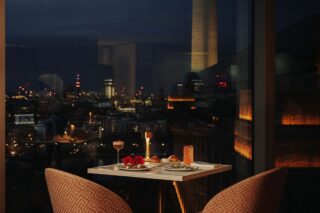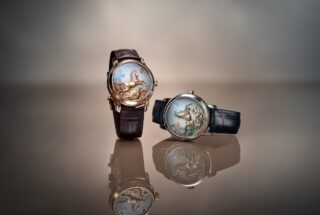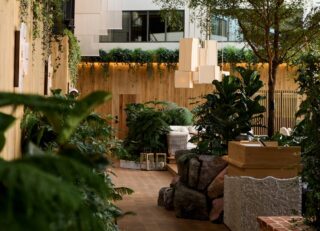This website uses cookies so that we can provide you with the best user experience possible. Cookie information is stored in your browser and performs functions such as recognising you when you return to our website and helping our team to understand which sections of the website you find most interesting and useful.
Cruising through Darwin’s laboratory: a trip to the wonder of the Galapagos Islands
By Sam Bradley | 3 January 2021 | Travel
How a pre-pandemic Ecoventura cruise got Tempus up and close and personal with unique species
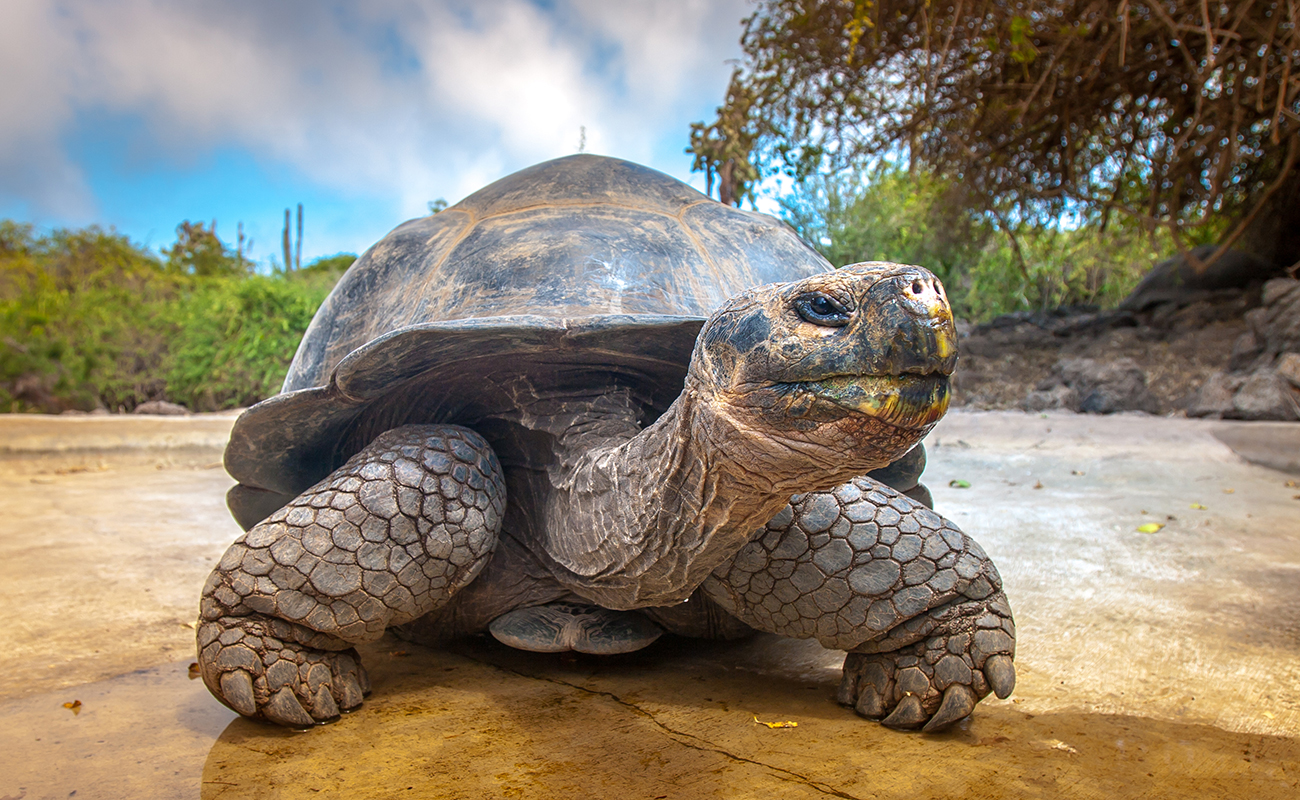
"Stay at least two metres away from the wildlife," we're told. Following this general rule is much easier said than done in the Galapagos Islands. Iguanas lazing in the sun are at constant risk of being tripped over; the sea lions are so curious and playful that it can be hard to get into the water without a friendly, whiskery face swimming over to say hello. These islands, which have the distinction of being named one of the first UNESCO World Heritage Sites in 1978, are a place where animals roam freely and fearlessly.
Along with a small group of other passengers, my wife and I are exploring this proverbial Garden of Eden – an archipelago located off the coast of Ecuador – with sustainable luxury cruise company Ecoventura. It doesn’t take long to realise that these islands, and the animals that inhabit them, are unique. The dry and arid landscapes are a far cry from the palm fringed beaches one would expect of an island on the equator. In the skies above glide the comical red footed and blue footed boobies, as well as the even more ridiculous frigate birds (unable to get wet, these pirates of the seas have become expert at stealing fish from other birds). On land one can find the aptly-named giant tortoises and in the oceans you’ll find marine iguanas contentedly foraging in the surf for tasty algae. One of our guides summed it up eloquently by welcoming us to "a world where mockingbirds don’t mock, cormorants can’t fly, penguins have never seen ice and venomous snakes have no venom".
It was these discoveries that helped Charles Darwin formulate his theory of natural selection, which he outlined in his book On the Origin of Species after travelling through the Galapagos in 1835. Darwin referred to these islands as a "living laboratory of evolution", and with more than 200 endemic species on the islands the claim appears to be justified. The dramatic geological landscapes provide more than enough rock formations and seismic activity to keep geologists endlessly entertained. And all this barely touches on the history of the island: hopefully mention of pirates, wars, colonials and a murder mystery involving a baroness and her three lovers will pique your interest. >>
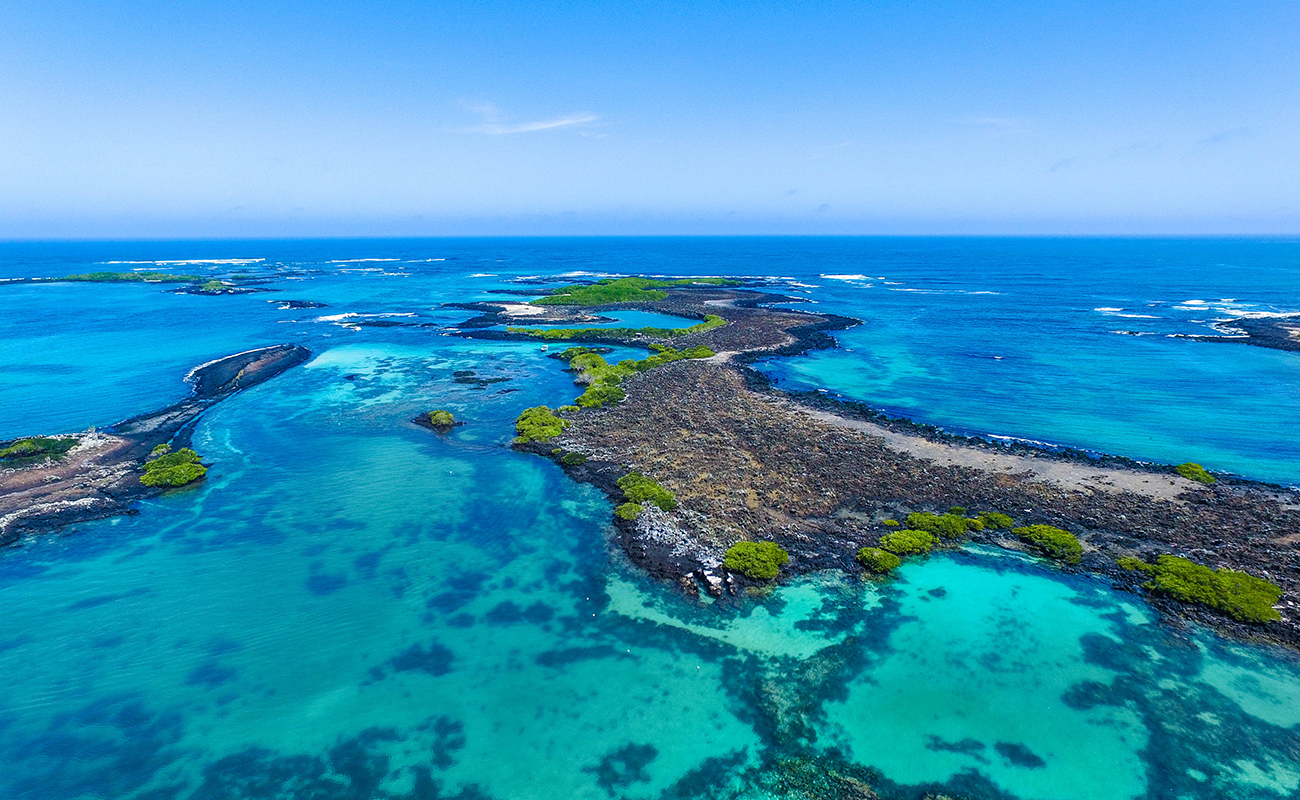
Island hopping by luxury yacht is a fantastic way to explore this paradise. For seven nights our home was the expedition yacht Theory, part of the Ecoventura group, which also operates three other vessels in the region, all done as sustainably as possible. The 'beaches and bays' itinerary saw us visiting four of the 13 main islands in the southern and eastern parts of the archipelago. Ecoventura also offers an itinerary centred on the more remote northern and western islands.
Upon leaving the main port of San Cristobal, we were amazed at the comfort and luxury on board. The yacht is equipped with spacious lounges, restaurant, gym, and a sundeck complete with jacuzzi, bar and the best spots to take in the views. All meals are taken on the boat, and Chef Estuardo managed to wow us on multiple occasions with a vast array of delicious meals based on both local Ecuadorian as well as western cuisine.
Over the course of the week we were lucky enough to walk, snorkel and kayak past an array of wildlife including flamingos, turtles, sea lions, sting rays, mobula rays, sharks, penguins, tortoises, iguanas, frigate birds and booby birds. The trip was also educational, thanks to having Dr Jack Grove on board – Dr Grove is an author, photographer and marine biologist who has spent over four decades lecturing about the world’s oceans (and the Galapagos in particular), and will return to the Theory from 29 November – 13 December 2020.
Grove and our two naturalist guides provided a wealth of knowledge, and their insights into the natural world surrounding us were astonishing. They also made us aware of the many challenges facing this fragile ecosystem: management of alien species, conservation efforts, steps to curb overtourism and scientific research currently underway were all topics that were fiercely discussed and debated around the dinner table most evenings. As an added bonus Peter was born on Floreana Island, so hearing his stories of growing up locally added that extra bit of magic stardust to our trip.
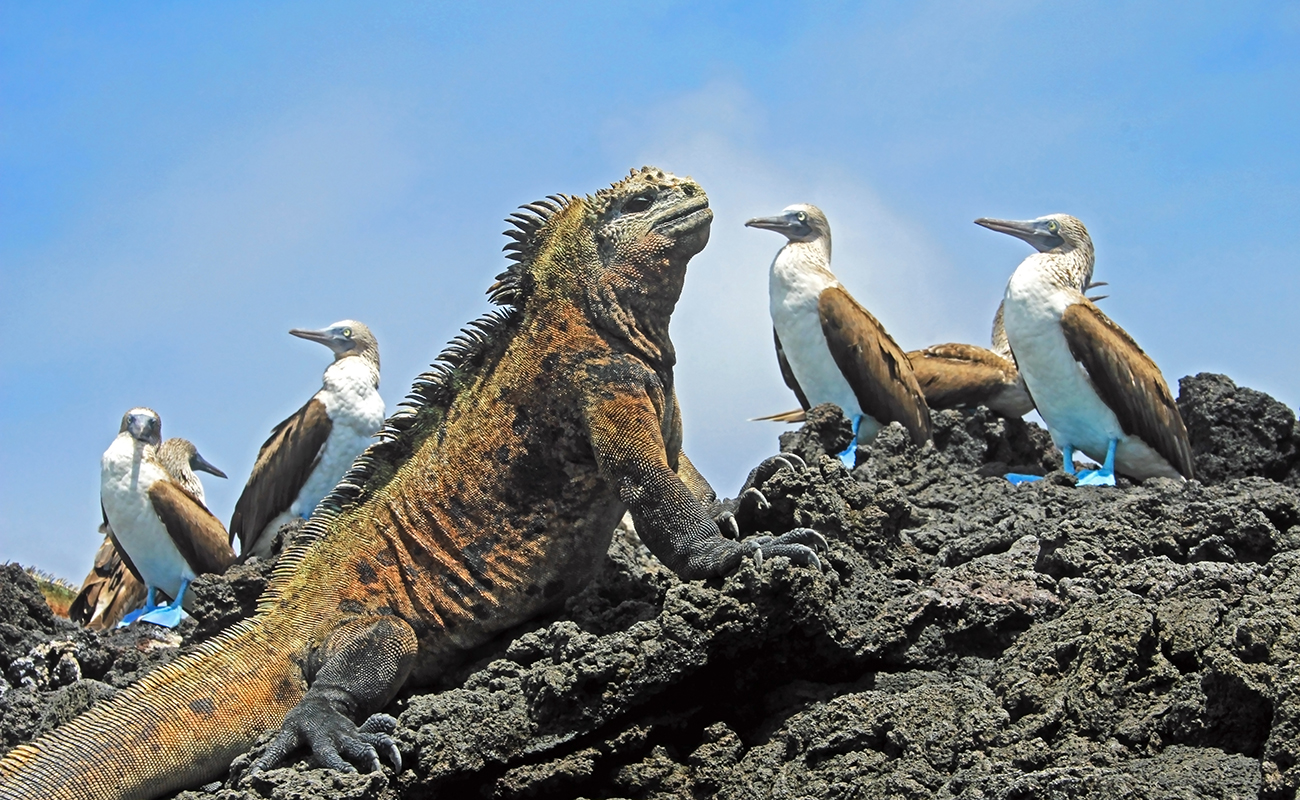
On closer reflection it can be seen this is not just an accident of nature: because the Galapagos Islands are made up of an incredibly sensitive ecosystem, many measures have been implemented to maintain this fragile balance. Major eradication programs have been undertaken to remove alien species such as dogs, cats, goats and rats, brought to the islands in the 17th century, and only 3% of the islands welcome tourism – the remaining 97% are set aside for conservation. Tourism must be undertaken with a local guide, and Ecuador's borders strictly control imports.
Yet even with these measures in place, over-tourism is an issue. Annual visitors now number in excess of 250,000 compared to the local population of roughly 30,000, and each must pay park conservation fees to help fund future projects and maintain the parks. The Charles Darwin Foundation, based on Santa Cruz island, is dedicated to scientific research and to conserve the Galapagos Islands.
As the week drew all too rapidly to its close, it occurred to me that my time on this yacht had meant a return to a simpler and more enjoyable lifestyle. It wasn't long before I had “lost” my watch, mobile phone and shoes, along with most of my superfluous stresses, strains and worries.
My days were now filled with sunshine, seawater, delicious food, exploring new places, exercise and the sort of good night's sleep that can only come from an active and fulfilling day. Life in Darwin's laboratory suited me so well I was almost ready to apply for a job as a deckhand and make the move permanent.




